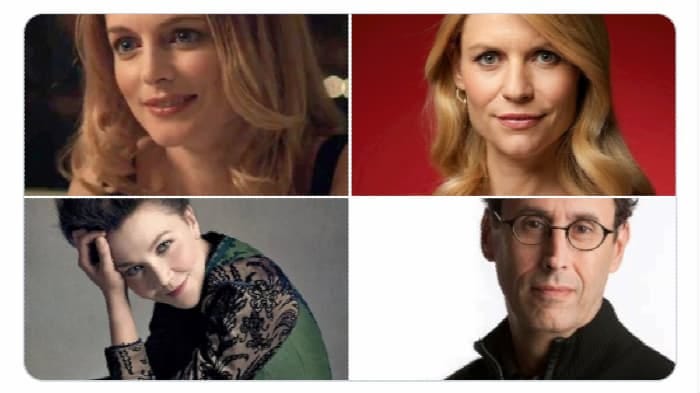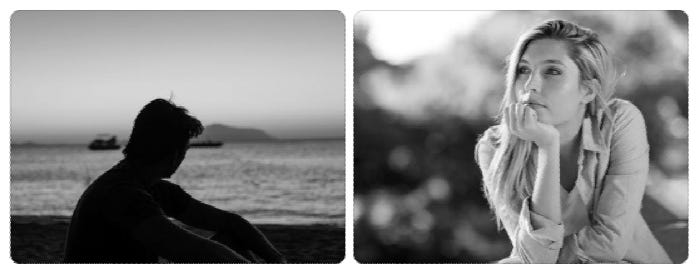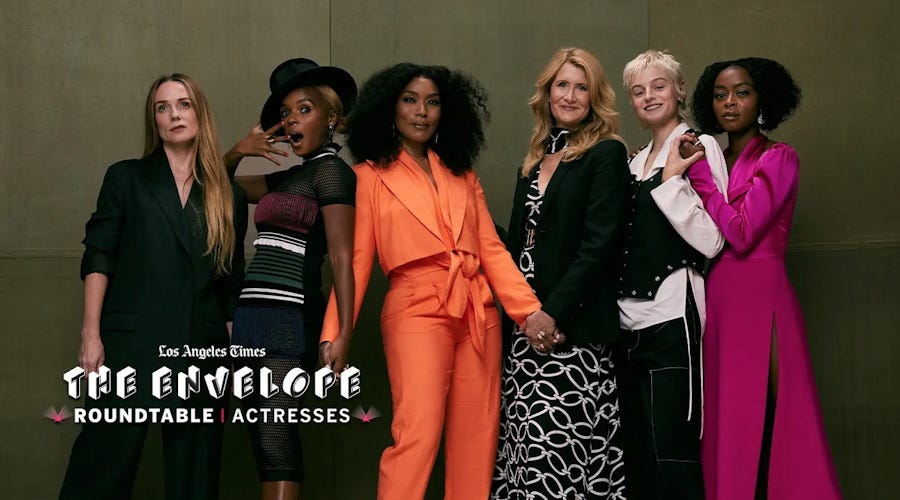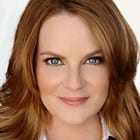How psychotherapy can benefit actors and other artists
Artists and psychologists on how therapy helps access creativity
Does counseling, such as psychotherapy, help artists be more fully creative?
Heather Graham: “In some ways therapy helps more than acting class. You realize why you operate in certain ways.”
Claire Danes: “My therapist gives me permission to accept that I’m human.”
Maggie Gyllenhaal: “When I started going to therapy there wasn’t a specific, clear, rational thing that made me start, but as soon as I did, everything in my life changed, almost immediately.”
Tony Kushner: “Psychoanalysis is so much fun.”
Psychotherapist Mihaela Ivan Holtz: “Psychotherapy is a powerful transformative journey.”
Psychologist Cheryl Arutt: “Creating art has always been a way to channel emotional intensity.”
~~~~~
“Acting is telling a story, and you’re part of telling that story.
“In some ways therapy helps more than acting class. You realize why you operate in certain ways.”
Heather Graham expressed one of the most valuable and positive reasons for therapy or counseling for an actor: knowing your emotions and inner dynamics better, so you can portray being a human more authentically.
~~~~
Actor Auli'i Cravalho said “Some of my best conversations with friends are like, oh, yeah, you’ll never guess what my therapist said the other day. It feels really good to have open communication like that.”
She says “I think therapy in itself is kind of like having a Jiminy Cricket, like a third party that you can bounce back ideas off of. It only benefits you to be honest with yourself and honest with those around you.” [From stylecaster interview. See her imdb profile for movie credits etc.]
~~~
Psychotherapist Mihaela Ivan Holtz helps creative people in TV/Film, performing and fine arts.
She writes about her work with creative clients:
“Creating or performing is what makes you feel alive, fulfilled, and in touch with who you really are. It gives your life meaning and purpose.
You know from deep in your soul that you are talented and skilled.
Yet, you find yourself feeling unhappy and stuck in issues that are not allowing you to be the true creative or performer that you are.
Emotional issues, creative blocks, anxieties, depression, or unfulfilling relationships are taking over – leaving you wondering if you can continue navigating the arts and the entertainment world and still become the creative and the performer that you want to be.
Psychotherapy is a powerful transformative journey that can take you from feeling unhappy and stuck to living with emotional freedom as a fulfilled creative or performer.”
The image above is from one of her many articles on her site: Creative Minds Psychotherapy.
Are Your Emotional Issues Affecting Your Creativity and Artistic Career? Psychotherapy Can Help By Mihaela Ivan Holtz, Psy.D., LMFT
~~~~
In another article of hers on her site, Dr. Holtz writes:
“Many of the clients who come to work with me, are longing for a more fulfilling life.
Despite success or some solid accomplishments, something is still missing. And maybe you long to live more fully.
Perhaps you desire a greater sense of vitality. Maybe you’re seeking more connected, genuine relationships.
You might be looking for a deeper sense of fulfillment in your career. Or maybe you feel you’re struggling with your creativity.
A more in-depth form of therapy can work with your unconscious and embodied states to make the solid and expanding shifts that you’re looking for...”
From post Healing From Inside-Out by Mihaela Ivan Holtz, Psy.D., LMFT.
~~~~
Psychotherapy and counseling on-set helps actors and crew members
Hosting a conversation for a Los Angeles Times Actresses Roundtable, writer Amy Kaufman asked about movie productions having an on-set therapist available for the cast and crew.
Three actors responded:
Laura Dern (“The Son”): Having a therapist was incredible, and in our case, used daily by crew and cast. …
In our case, the film addresses mental health crises among teenagers. And while we’re starting the film, the numbers are skyrocketing within this pandemic — and perhaps also the impact of social media. So raising children while also telling the story, I was just looking at what was around me every day.
I remember the first day, I did a scene with my son talking about not being able to handle the anxiety that he’s going through. [Meanwhile,] my daughter was online, in school, alone in her room. And I said, “Baby, is there anything about this that you can find joy or comfort in?”
And she said to me, “Well, Mom, I guess the only positive thing that’s sort of calming me is at least right now, I’m here in my room, I don’t have to be scared every day that I’m going to get shot at school.”
And here I am, parenting a 16-year-old in crisis thinking, “This is a horrific epidemic of cultural anxiety.”
And that’s when the lines are blurred. You’re not searching for understanding. We’re all in it.
Danielle Deadwyler (“Till”): We had someone every day. I mean, crew would have emotional breakdowns — just moments of utter and complete crying.
And people would have to take moments to step away. It wouldn’t always even be a traumatic scene, it would just be literally conversation, and then the waterworks start.
So people would just step away and have a conversation with the therapist. It’s a simple, easy, beautiful thing. People can maintain some sense of wellness as we intentionally move through challenges together.
Emma Corrin (“Lady Chatterley’s Lover”) added: It’s so good to make that a conversation. It’s OK not to be OK and to seek help for it. Because sometimes on set, there’s this constant feeling of you have to go, go, go. You can’t stop, because —
Deadwyler: … You don’t want to stop the train.
Corrin: Yeah, because everyone’s relying on each other. So you feel like you’re letting down all these other people. But I feel like as soon as people start speaking up and saying, “I’m not feeling great,” or “I need to talk to someone,” then I think it’s good for everyone.
From article “Angela Bassett, Laura Dern talk nudity on set post-#MeToo, learning how to slow down” By Amy Kaufman, Los Angeles Times Dec. 8, 2022.
Related video: “Actresses Roundtable: Angela Bassett, Laura Dern, Janelle Monáe, Emma Corrin & More.”
~~~~
Exploring the unconscious as an actor or other artist.
In their conversation for a magazine article, playwright Tony Kushner and actor Maggie Gyllenhaal talked about the values of counseling and exploring the unconscious:
Tony Kushner :
We forget that the unexpected has great entertainment value — that’s why psychoanalysis is so much fun.
We’ve talked about therapy before — we’ve both been patients.
Do you believe in the unconscious?
Maggie Gyllenhaal :
Yes. When I started going to therapy there wasn’t a specific, clear, rational thing that made me start, but as soon as I did, everything in my life changed, almost immediately.
Even just calling the therapist started a wave going.
Maybe three weeks into it I had a dream where I was like, “I need to change a lot of things.”
Tony Kushner : Did you find that going changed the way you were dreaming?
Maggie Gyllenhaal : Yeah. And the way I was looking at my dreams.
I had an incredible experience when I was doing Casa de los Babys [directed by John Sayles, 2003].
On the last day of my working, it was a really intense scene, and I hadn’t mapped it out.
My call was at 8 A.M., and I had gone to sleep at 11, so I was rested, but I was tired.
I got to the set, and I had maybe an hour while they got the lights together, so I lay down and had an overwhelming dream — and I feel as if I needed to have it in order to play the scene.
There’s another part of me working that isn’t the intellectual side — the unconscious — and that was not awake most of my life.
Not actively. There were times when it would push through, but now I feel I’m really honoring it.
Continued in longer article onThe Creative Mind site: How psychotherapy can benefit actors and other artists.
~~~~
Related posts here on Substack
~~~~~~











